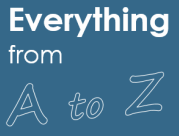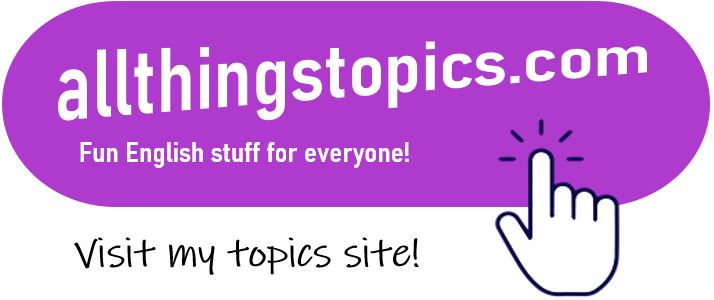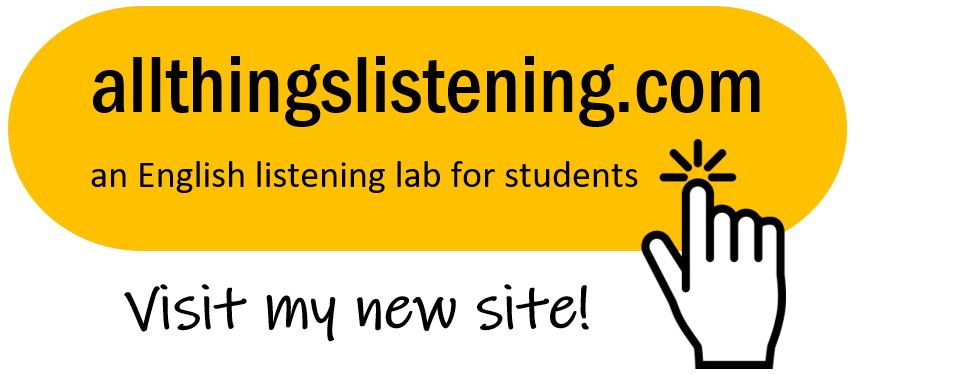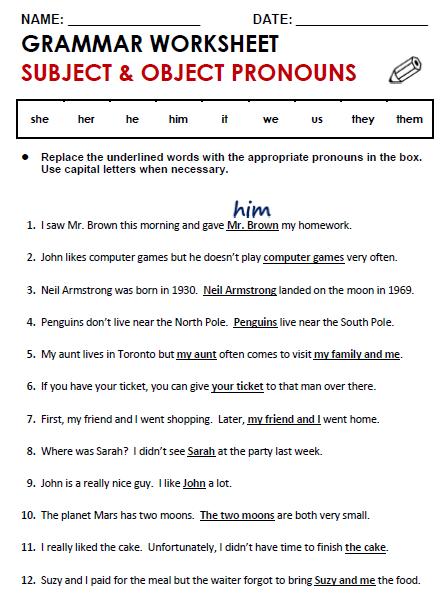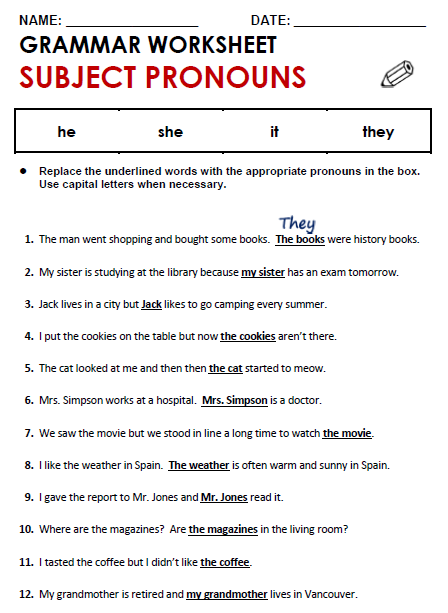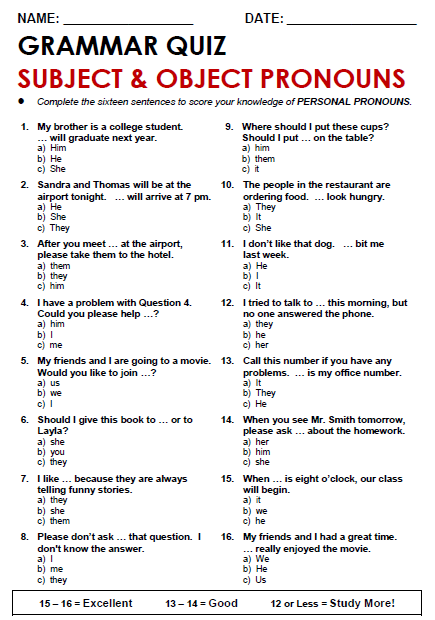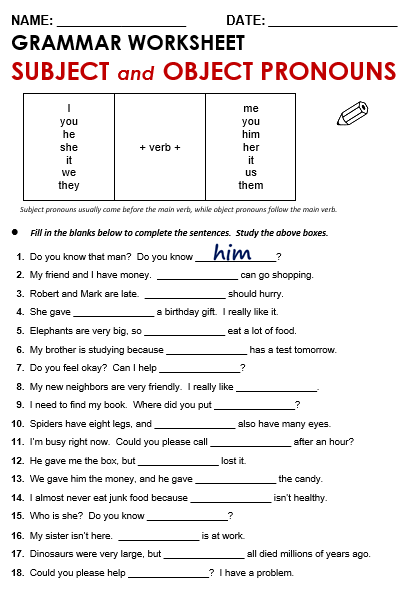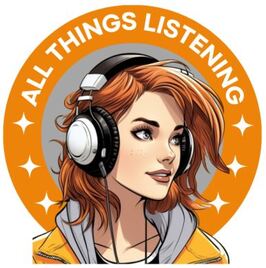Quality ESL grammar worksheets, quizzes and games - from A to Z - for teachers & learners
SUBJECT and OBJECT PRONOUNS
SUBJECT and OBJECT PRONOUNS
Try the interactive version of the above quiz!
|
Grammar Worksheet Subject and Object Pronouns
18 sentences (fill in the gaps to complete each sentence); with ANSWER KEY and percentage conversion chart Intermediate Level Approximately 15 minutes Download the PDF file by clicking on the gold
button below! ACTIVITY SUGGESTION
Before giving this worksheet to your students, model the exercise: draw the grammar box (at top of file page) on the board (but write just 'me' in the Object Pronoun column). Explain that 'I' usually comes before the main verb in a sentence, and that 'me' follows the main verb. For example: "I have a pen." / "He is talking to me." Elicit the remaining Object Pronouns and write them in the column. Then, give the handout to your students and ask them to fill in the gaps with the correct words. Wrap-up by having students compare answers with classmates, and then choose one or two students to write their answers on the board: (1) him; (2) We / etc. Correct and discuss any mistakes. (Add 5 to 10 minutes.) |
